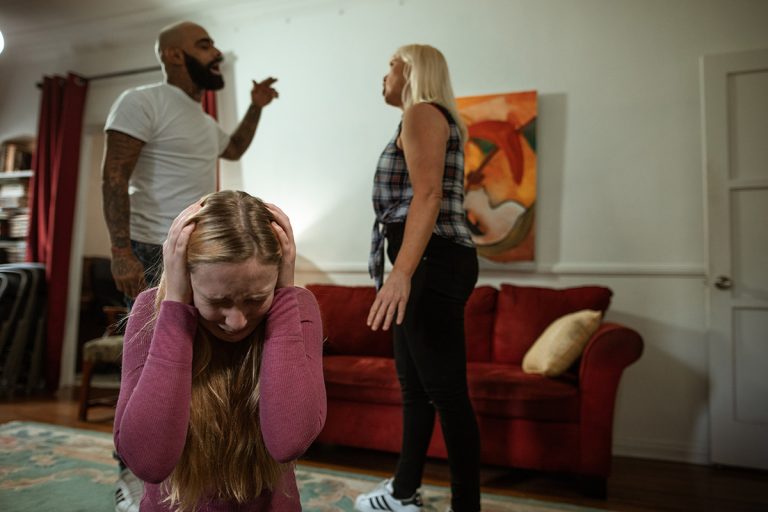When you and your partner are considering separation, it is important to make decisions about the parenting arrangements for your children. You need to ensure that any arrangements are in the best interests of the children but also realistic and sensible. As every family is different, what works for other people may not suit your own situation. Some practical things that you will need to consider include:
- Where the child(ren) will live;
- What time will the child(ren) spend with their other parent, including overnight(s);
- The distance between you and your former partner’s new home affecting travelling/transport time and costs;
- The age of your child(ren);
- How communication between your child(ren) and their other parent occurs and when;
- Will you and your partner be able to agree about issues such as education, religion, medical issues and sporting commitments;
- Arrangements for birthdays, special occasions and holidays;
- How will you agree about changes to the child(ren)’s circumstances as they grow?
Reaching agreement
You must first try to talk to the other parent about your respective proposals. Before a court can become involved it is mandatory to discuss these matters with the other parent. If you can reach an agreement, you should consider entering into some Consent Orders or a Parenting Plan, which the Family Law Team at Long Saad Woodbridge are happy to assist you with.
What if you cannot reach agreement?
You may find that, following your separation, discussions between you and your partner are ongoing, but there remains no firm arrangement in place for your child(ren).
A parent may change arrangements with no notice or at short notice, or their behaviour may become inconsistent with the parenting arrangements. Such situations are generally not in the best interests of children. Not only do children require a routine, but uncertainty of arrangements does not allow parents to plan their lives around the routines of their children. Before you apply to the Court for parenting orders, you are required to attempt to resolve your dispute by formal means, such as attending upon a Family Dispute Resolution Practitioner (“FDRP”).
There are some exemptions to this, including urgency, allegations of child abuse or risk of abuse or allegations of family violence. Following attendance with a FDRP, in the event your dispute is not resolved, you will be given a Certificate that is filed in the Court with your Application to permit the Court to accept your case.
What will the Court consider?
The Court will consider a parenting application based on what is in the best interests of your child(ren) – not your best interests. In considering the best interests of your child(ren), the primary matters the Court will look at are:
- The benefit to the child of having a meaningful relationship with each of their parents;
- The need to protect the child from physical or psychological harm from being subjected/exposed to abuse, neglect or family violence.
Additional matters the Court will consider include:
- Depending on their ages, the views of each child and the weight to be given to their views;
- The relationships between the child and their parents as well as other persons such as extended family;
- The extent to which each of the parents has participated in the child’s lives (or failed to), such as making decisions about children’s long term issues, spending time/communicating with the child;
- The parents’ obligations to maintain the child;
- The impact of changes on the child resulting from separation from their parents or other persons with whom the child has been living;
- The capacity of each parent to provide for the needs of the child, including their emotional and intellectual needs;
- The maturity, sex, lifestyle and background including culture/traditions of the child and/or parents;
- If the child is and Aboriginal child or Torres Strait Islander child, the child’s right to enjoy their culture;
- The parents’ attitude to the child and their demonstrated responsibilities of parenthood;
- Any family violence involving the child or member of the child’s family and the relevance of family violence orders that may apply;
- The preference to make orders least likely to lead to further parenting proceedings;
- Any other relevant fact or circumstance, giving the Judge a wide discretion to consider matters relevant to this particular
Things to keep in mind generally
A child’s parents are usually the two people that they love most in the world. Your relationship may have dissolved with your former partner, but your child’s relationship does not. Consider giving your child your permission for them to love their other parent, as they may desperately want to (even though they may tell you otherwise).
Remember, children are usually in your lives – for life. For this reason, you and your former partner will be linked in some way for a very long time, even after your children become adults. There will be birthdays, school and sporting functions and events where your children would like both of their parents to be present.
There may even be future engagements/weddings or even the birth of their own children. If your relationship with your former partner is toxic, you may be placing your child in the position where he/she has to effectively choose which parent to invite to such events. If you are able to adopt a “business-like” relationship with your former partner, are able to be civil and importantly to restrain yourself from saying those things that you so desperately want to say to the other parent, your children may observe your behaviour and recognise that you are giving them your support to have a relationship with their other parent.
For these reasons, remember:
- Parenting arrangements are for the benefit of children – not the parents.
- Children must be protected from conflict between their parents.
Case Study
Sebastian and Tracey had been separated for approximately 5 months. Their two young children (primary and pre-primary school aged) had been spending time with their father in accordance with fairly loose arrangements between the parents, set up at a time of great stress and upheaval.
Sebastian and Tracey were trying to limit their communication to email and text messages. Attempts had also been made between Sebastian and Tracey’s lawyers from around the time of the parents’ separation to put in place more formally agreed arrangements, without the need of commencing court proceedings. Neither party was happy with these arrangements overall.
Tracey complained that Sebastian did not return the children at the agreed time and was concerned with Sebastian’s accommodation and care arrangements.
On the other hand, Sebastian complained that Tracey did not inform him of the children’s extracurricular or school activities. When school holidays came about, there was increased communications between the lawyers and the parents themselves, where they each disagreed with the arrangements and time that the children were to spend with each parent. Tracey eventually began to feel anxious each time the children spent time with their father, not knowing whether they would be returned to the agreed time or when she might expect another letter from Sebastian’s lawyer.
Sebastian and Tracey attempted to resolve some of the parenting issues through mediation with the assistance of a Family Dispute Resolution Practitioner, but their differences remained outstanding and no formal agreement could be reached. After 5 months, Tracey decided to file an Application with the Family Court (together with her Certificate obtained from the mediation).
Their case came before the Court, and an interim decision was made by a Judge. Both parties immediately knew the exact times and occasions that the children would be spending with each parent. Both parties also knew that there were legal consequences if either of them strayed outside the orders without the other’s written agreement.
Tracey reported that the children quickly settled and adjusted into their routines. Tracey personally felt an immediate sense of relief. She was able to plan her weeks around the children’s routine and her relationship with Sebastian improved greatly. Although there were many facts and issues raised before the Court, we helped Tracey to address the important factors that needed to be considered in the best interests of the children.
As a result, the arrangements for Tracey, Sebastian and their children quickly settled down and Tracey was ultimately happy and relieved that the uncertainty she had faced for the previous 5 months had resolved so quickly after receiving formal Orders from the Court.Note: Majority of cases do not require the commencement of court proceedings.
However, where parents are simply unable to reach agreement after some months, and some parents do lengthen discussions as a “strategy”, it might be considered the best course to simply file an application with the Court and get an interim ruling.
What can you do?
Contact us and a member of our Family Law Team will be happy to help you, providing you with thorough and thoughtful advice regarding your options, to enable you to make the best decisions for you and your child/ren and one that will not have to be undone at great emotional and monetary costs.
Note: It is important to keep in mind that the above commentary does not relate to cases where there are allegations of family violence.
In these situations, special care and consideration must be given to parenting matters. Long Saad Woodbridge’s Family Law Team can assist with the careful drafting for parenting arrangements that may be required to provide for the safety of children and parties in situations of family violence and to ensure that such arrangements are in the children’s best interests.





